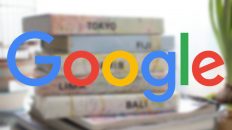A large majority of us invariably use Google search to find information, products and services on the Web. Smart searchers may have noticed the fact that sponsored results (PPC or pay-per-click ads) have been slowly taking over more and more of results page of the search engine. In this context, WordStream has just conducted a research into what sort of effect these new, more prominent, engaging and much bigger, ad formats are apparently having on the searchers. According to its findings, clicks on paid search listings score over organic clicks by a heavy margin of 2:1 for key terms with rather high commercial intent in America.
noticed the fact that sponsored results (PPC or pay-per-click ads) have been slowly taking over more and more of results page of the search engine. In this context, WordStream has just conducted a research into what sort of effect these new, more prominent, engaging and much bigger, ad formats are apparently having on the searchers. According to its findings, clicks on paid search listings score over organic clicks by a heavy margin of 2:1 for key terms with rather high commercial intent in America.
Organic searches versus paid search
To be specific here, organic searches overall still draw more clicks than paid search. However, not all of the keyword searches are created equal. Those with palpable commercial intent, as stated above, or those where a searcher is thinking to purchase a product or service are of greater worth to online businesses than basic information-related keyword searches. The research goes to show that for these more valuable keyword searches with high commercial intent, paid search ad listings gave the ‘free’ organic search listings quite a thumping beat-down.
Clicks on SERPs for commercial searches score
So even though clicks on paid search listings were almost double the number of organic clicks on Google, only keywords denoting clear commercial intent did well. Sponsored results represented 64.6 percent of clicks on SERPs for commercial searches, whereas organic clicks did account for 35.4 percent only. The term ‘high commercial intent’ was defined by Google’s own parameters, including keyword searches, which trigger a Shopping box or Product Listing ad.
The higher click-through rate on paid advertisements on commercial searches was attributed to Google’s constant addition of newer ad products. These comprise product listing ads, bottom of page ads, remarketing, map/location ad extensions, chat ads, email ads, click-to-call, social extensions, local extensions, and site links. It’s a heartening fact for internet marketers that the newer sponsored ad formats – more engaging and more targeted – let businesses target prospects in more relevant and precise ways. They are causing the increased CTR for high commercial intent key term searches.
But couple these plus other new ad innovations with the very fact that nearly half of Google searchers still cannot differentiate between organic and paid search listings, and one can quickly grasp what’s happening out there. The result is, organic search has become harder and significantly costlier to execute, difficult to measure, yielding more and more unpredictable ROI.
The study concluded that drawing clicks on organic listings even for these commercial searches was bound to get tougher. This, the research mentioned, was primarily owing to factors like the Panda/ Penguin algorithm updates and withholding of referrer data by Google when users are logged into while searching. The survey report mentioned:
“While the innovative new paid search advertisement options are rapidly growing in size and power, Google is simultaneously waging all-out war on SEO web spam. Over the past few months we’ve seen significant updates that make it harder to rank in organic search, including Panda Update, Google Analytics Update, and Penguin Update.”
The survey was done among advertisers in America, for Google Search only. The researchers used recent average click-through rate data collected through WordStream’s AdWords Performance Grader across more than 1000 AdWords accounts in the two month’s time period. They also considered the Google Analytics/Webmaster Tools as well as AdWords account data of the agency’s managed accounts for analyzing organic click-through rate data and relevant trends.




